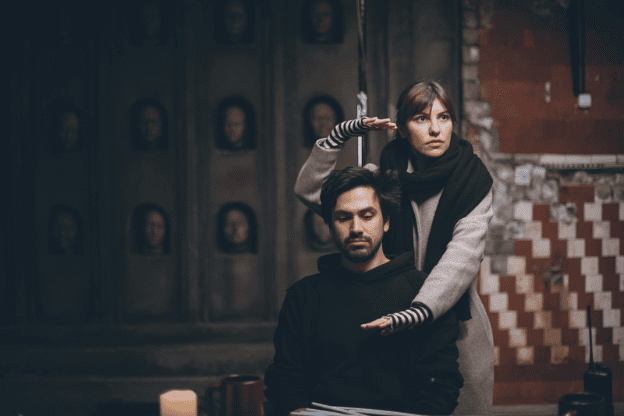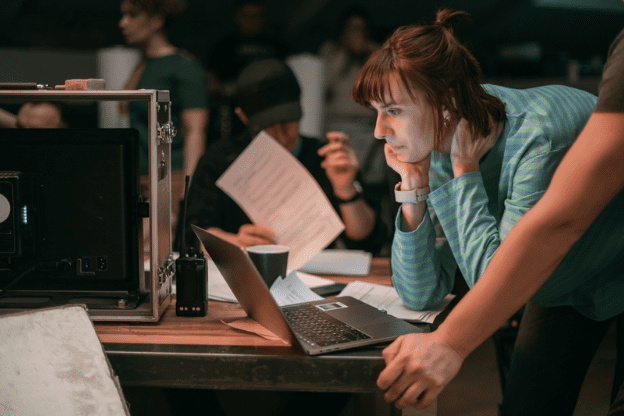
Directing actors is both an art and a science, requiring a keen understanding of human behavior, psychology, and the nuances of storytelling. Authentic performances are the heart of any successful film, making the director's role crucial in guiding actors to deliver their best. This article explores tips for eliciting genuine and compelling performances from actors, with insights on how the RSFI Institute can elevate your film direction skills.
| Introduction |
|---|
| The Importance of Authenticity in Acting |
| Understanding Your Actors |
| Crafting Detailed Character Backstories |
| Encouraging Emotional Truth |
| Directing Techniques for Authentic Performances |
| Creating a Supportive Environment on Set |
| Leveraging the RSFI Institute for Skill Enhancement |
| The Impact of Effective Direction on Film Success |
| Continual Learning and Adaptation |
| Conclusion: The Art of Directing Actors |
| Frequently Asked Questions |

Authenticity in acting transcends mere dialogue delivery; it involves embodying a character's emotions, motivations, and subtleties in a way that resonates with the audience. An authentic performance captures the complexity of human experiences, making the story believable and engaging.
One of the fundamental aspects of directing is building trust with your actors. Trust fosters a safe environment where actors feel comfortable experimenting and taking risks. Establish open lines of communication, listen actively, and show appreciation for their input. This mutual respect forms the foundation for collaborative creativity.
Understanding these can help you tailor your direction to leverage their strengths while addressing any weaknesses. Conduct one-on-one sessions to discuss their background, training, and previous roles, which will give you insights into their capabilities.
Actors need a deep understanding of their characters to deliver authentic performances. Provide them with detailed character backstories that go beyond the script. Discuss the character's past experiences, relationships, and internal conflicts. This depth of knowledge helps actors internalize their roles and portray them convincingly.

Encourage actors to draw from their personal experiences and emotions. This method, often associated with Method Acting, helps actors connect with their characters on a deeper level. Facilitate exercises that allow them to explore these connections, such as improvisation or memory recall techniques.
Read About: : Meisner Technique vs Method Acting: Which One Suits Your Acting Style?
Leading lines lead the viewer's eye into the photo, creating a sense of depth and movement. These lines can be natural, like rivers or paths, or man-made, like fences or roads. Incorporating leading lines into your composition adds dynamism to your landscapes.

Directors should focus on subtext—the underlying meaning behind the dialogue. Help actors understand their characters' objectives in each scene, as well as the obstacles they face. This approach provides context and motivation, leading to more dynamic and layered performances.
Clarity is crucial when directing actors. Provide specific, actionable feedback that they can easily interpret and implement. Avoid vague or abstract instructions, as they can lead to confusion and inconsistency. Instead, focus on concrete actions and intentions that guide actors toward the desired performance.
Allow actors the freedom to explore their characters and scenes through improvisation. This technique can lead to unexpected and authentic moments that enrich the film. Encourage actors to experiment with different approaches, fostering a collaborative environment where creativity thrives.
Read About: Best Filmmaking Courses After 12th: RSFI Institute Fees & Eligibility 2024

A positive and supportive atmosphere on set is essential for eliciting authentic performances. Ensure that actors feel valued and respected and address any concerns or issues promptly. A harmonious set boosts morale and allows actors to focus on their craft without distractions.
Filmmaking can be demanding, both physically and emotionally. Recognize the signs of stress and fatigue in your actors and take steps to mitigate them. Schedule breaks, provide comfortable resting areas, and promote a balanced work pace. A well-rested and relaxed actor is more likely to deliver a genuine performance.
The RSFI Institute offers a range of training programs designed to enhance your skills in film direction. Their courses cover various aspects of directing, from technical skills to the art of storytelling. Enrolling in these programs provides you with a solid foundation and advanced techniques to excel in directing actors.
At RSFI, you'll have the opportunity to learn from experienced mentors and instructors who have worked in the industry. Their insights and real-world experiences offer invaluable guidance, helping you navigate the complexities of directing actors. This mentorship can significantly improve your ability to elicit authentic performances.
The institute's practical workshops and exercises allow you to apply theoretical knowledge in real-world scenarios. These hands-on experiences are crucial for honing your directing skills and gaining confidence in working with actors. The structured environment provides a safe space to experiment and refine your approach..
Read About: What is the Stanislavski Method and How Do You Master It? - RSFI Institute

Effective direction enhances storytelling by bringing characters to life in a believable and compelling manner. Authentic performances draw audiences into the narrative, creating an emotional connection that elevates the overall impact of the film.
A director who excels at eliciting authentic performances can build a strong ensemble cast. This cohesive unit works seamlessly together, delivering performances that complement and elevate each other. The synergy of a well-directed cast contributes to the film's success and critical acclaim.
Films with authentic performances often achieve critical and commercial success. Audiences and critics alike appreciate the depth and realism that skilled direction brings to the screen. By mastering the art of directing actors, you increase the likelihood of your film resonating with viewers and achieving recognition in the industry.

The film industry is constantly evolving, with new techniques and trends emerging regularly. Stay updated with industry developments by attending workshops, reading relevant literature, and networking with peers. Continual learning ensures that your directing skills remain sharp and relevant.
Each genre and style of film presents unique challenges and opportunities for directors. Adapt your directing approach to suit the specific requirements of different projects. This flexibility enhances your ability to elicit authentic performances across a diverse range of films, broadening your expertise and appeal as a director.
Read About: The Future of Acting Education: Innovation at RSFI Institute
Directing actors to deliver authentic performances is a multifaceted and rewarding endeavor. It requires a deep understanding of human emotions, effective communication, and a supportive environment. By implementing the tips and techniques outlined in this article, you can elevate your directing skills and achieve compelling, believable performances from your actors.
The most important aspect is building trust and effective communication. This creates a safe environment where actors feel comfortable experimenting and taking risks, leading to authentic performances.
Provide detailed character backstories and discuss their motivations, relationships, and internal conflicts. Encourage actors to draw from personal experiences and emotions to connect with their characters on a deeper level.
Improvisation allows actors to explore their characters and scenes in new ways, leading to unexpected and authentic moments. It fosters a collaborative environment where creativity thrives.
The RSFI Institute offers comprehensive training programs, experienced mentors, and practical workshops that provide the tools and knowledge needed to excel in directing actors and eliciting authentic performances.
Continual learning keeps directors updated with industry trends and new techniques, ensuring their skills remain sharp and relevant. It also enhances their ability to adapt to different genres and styles, broadening their expertise and appeal.